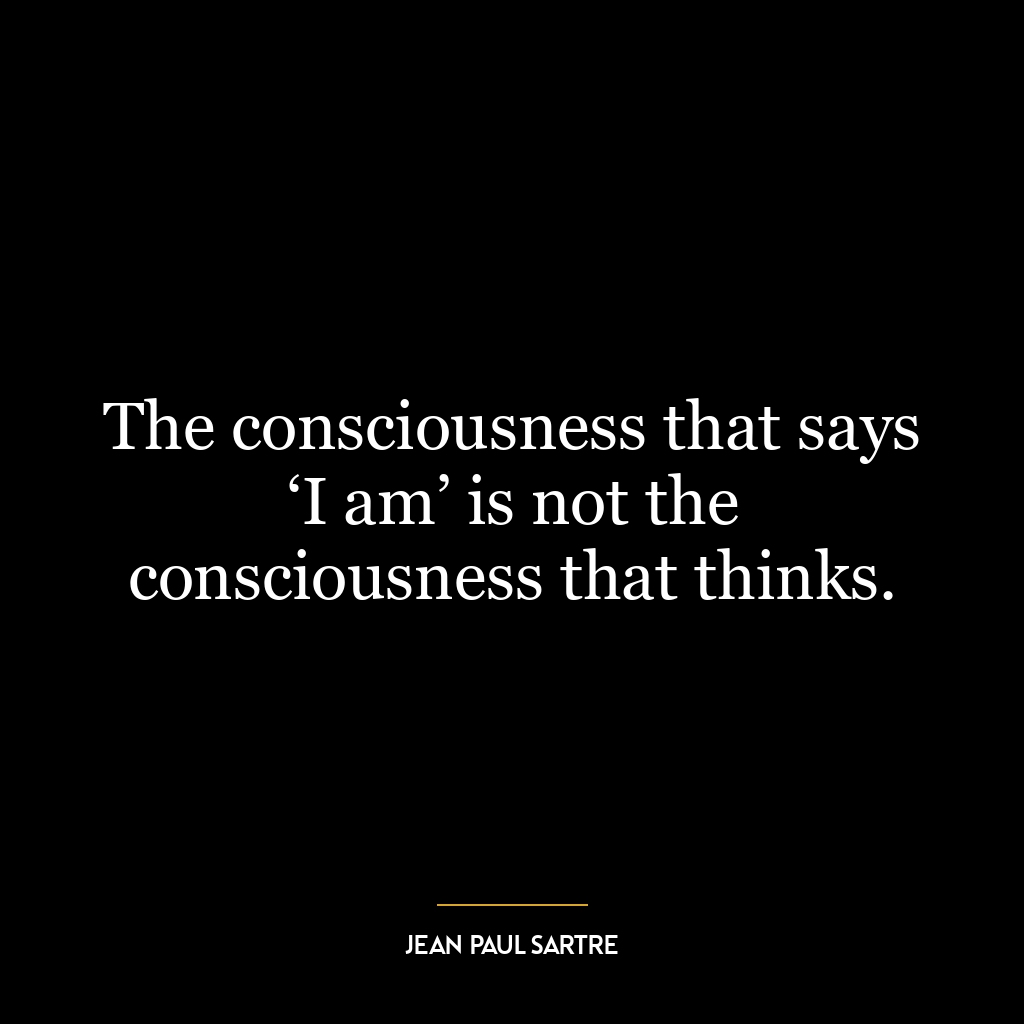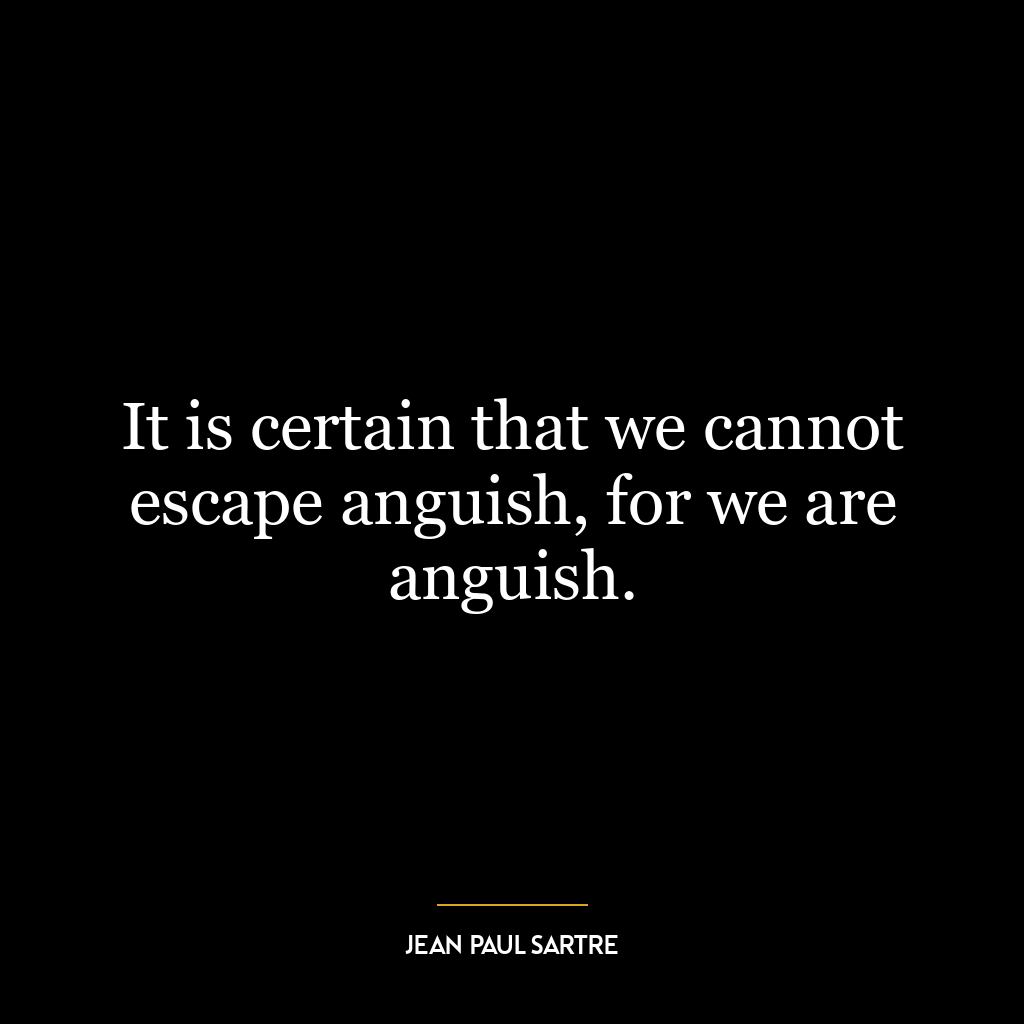
Jean-Paul Sartre Quotes
- Philosopher
- France
- 1905
Jean-paul Sartre Was A French Philosopher, Novelist, Playwright, Biographer, And Political Activist. He is considered one of the key figures in the existentialism movement and is widely recognized as the father of the modern philosophy of existentialism. he was awarded the nobel prize in literature…Read More
Jean-paul Sartre Was A French Philosopher, Novelist, Playwright, Biographer, And Political Activist. He is considered one of the key figures in the existentialism movement and is widely recognized as the father of the modern philosophy of existentialism. he was awarded the nobel prize in literature in 1964, but he declined it.Read Less
Jean-paul Sartre Was A French Philosopher, Novelist, Playwright, Biographer, And Political Activist. He is considered one of the key figures in the existentialism movement and is widely recognized as the father of the modern philosophy of existentialism. he was awarded the nobel prize in literature in 1964, but he declined it.
202 Interesting Jean-Paul Sartre Quotes

























Jean-Paul Sartre Career Highlights
- Sartre was born on June 21, 1905, in Paris, France. He studied at the École Normale Supérieure and became a professor of philosophy at the prestigious Lycée Condorcet in Paris.
- In 1938, Sartre published his first major philosophical work, “Nausea,” which explored the themes of existentialism and the absurdity of human existence.
- In 1943, Sartre published his most famous work, “Being and Nothingness,” which established him as a leading figure in the existentialist movement.
- Sartre was also a prolific playwright and wrote several influential plays, including “No Exit” and “The Flies.”
- In 1964, Sartre was awarded the Nobel Prize in Literature, but he declined the award, stating that he did not want to be “institutionalized.”
- Sartre was a vocal critic of colonialism and imperialism and was actively involved in political activism. He was a member of the French Resistance during World War II and later became a prominent figure in the French anti-war and anti-colonial movements.
Key Contributions by Jean-Paul Sartre
- Sartre’s philosophy of existentialism emphasized the individual’s freedom and responsibility in creating their own meaning and purpose in life.
- He rejected the idea of a predetermined human nature and argued that individuals are defined by their actions and choices.
- Sartre’s concept of “bad faith” explored the ways in which individuals deceive themselves and deny their freedom and responsibility.
- He also introduced the idea of “authenticity,” which is the pursuit of living in accordance with one’s true self and values.
- Sartre’s work had a significant impact on literature, particularly in the genre of existentialist literature, which explored similar themes of human existence and freedom.
What Sets Jean-Paul Sartre Apart
- Sartre’s work was highly interdisciplinary, drawing from philosophy, literature, psychology, and politics. This interdisciplinary approach allowed him to explore complex ideas and make connections between different fields.
- He was also known for his engaging and accessible writing style, making his ideas more accessible to a wider audience.
- Sartre’s work was highly controversial, challenging traditional beliefs and societal norms. He was not afraid to speak out against injustice and oppression, making him a polarizing figure in his time.
- Sartre’s refusal of the Nobel Prize and his rejection of institutionalization demonstrated his commitment to his principles and his belief in the individual’s freedom and autonomy.
Takeaways
- Sartre’s work continues to be relevant and influential in contemporary philosophy, literature, and politics.
- His emphasis on individual freedom and responsibility serves as a reminder to question societal norms and to live authentically.
- Sartre’s interdisciplinary approach and engaging writing style make his work accessible to a wider audience, making his ideas more accessible and relevant.
- His refusal of the Nobel Prize and his rejection of institutionalization demonstrate the importance of staying true to one’s principles and beliefs.







